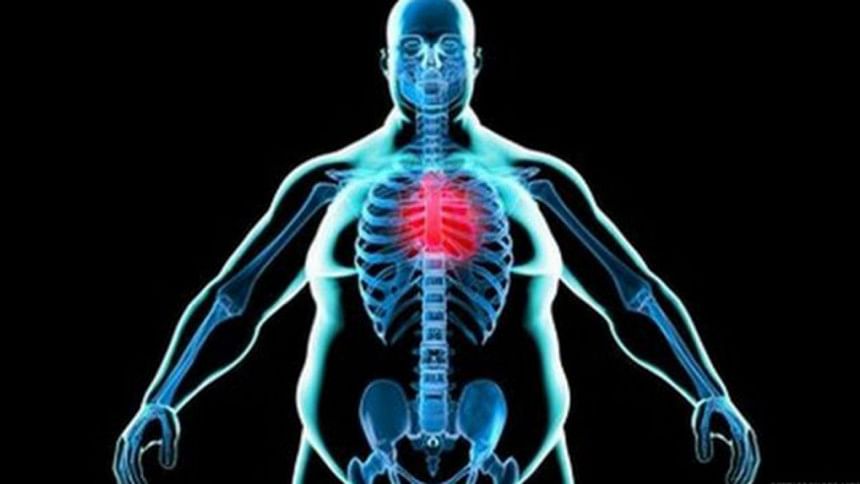Being overweight 'may be less unhealthy'

Being overweight may not be as unhealthy as it was 40 years ago, Danish research suggests.
The study found the "moderately" overweight now had lower rates of early death than those who were normal weight, underweight or obese.
The work, published in JAMA, looked at many thousands of people's height, weight and death rates at three different time periods since the 1970s.
A UK doctor said it did not mean being overweight was healthy or desirable.
And advice about preventing obesity should remain.
MEASURING OBESITY
A person's body mass index (BMI) is calculated by dividing their weight in kilograms by the square of their height in meters.
In the mid-1970s, those with the lowest death rates were a normal weight and the obese faced a 30% higher risk of early death, the doctors, from Copenhagen University, found.
The authors say the most likely explanation is that health systems are now much better at treating obesity-linked conditions, such as high cholesterol and blood pressure.
Lead investigator Prof Borge Nordestgaard said: "Our results should not be interpreted as suggesting that now people can eat as much as they like, or that so-called normal-weight individuals should eat more to become overweight.
"That said, maybe overweight people need not be quite as worried about their weight as before."
The Danish researchers say their work shows a need to update the global categories that define excess weight, which are now two decades old.
But that idea was rejected by a British expert in metabolic medicine.
Prof Naveed Sattar, from the University of Glasgow, said: "These data are of interest, but they do not change advice we have been giving on obesity and its treatment and prevention.
"The current findings do not mean that being overweight is protecting you from death, far from it.
"Obesity and overweight categories also signal risks for many diseases - such as type-2 diabetes, liver disease, cancers, sleeping problems, multiple pregnancy complications, to name but a few.
"Although we can manage many of those much better these days, such complications also impair quality of life and self-esteem, as well as increase health costs for societies."

 For all latest news, follow The Daily Star's Google News channel.
For all latest news, follow The Daily Star's Google News channel. 








Comments